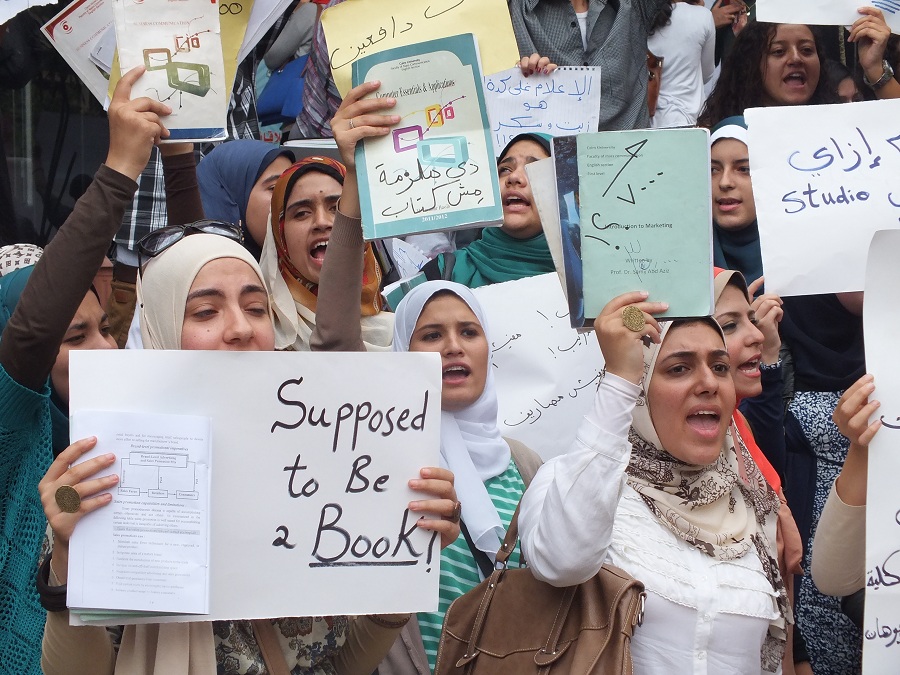
(Photo courtesy of Ministry of Supply)
July increases in food commodity prices can be attributed to the application of the new ration card system, according to supply ministry spokesman Mahmoud Diab.
Diab, who spoke to the Daily News Egypt on Saturday, said the new system prevents the smuggling of items and offers citizens better quality of products. It also allows competition with market products, Diab said, adding that under the old system, half of the commodities were being smuggled.
The old system offered each citizen holding a ration card 2kgs of rice, 2kgs of sugar and 1.5kgs of cooking oil. To keep the prices low, the state bore EGP14 from the cost of the products.
Meanwhile, the new system provides citizens access to 20 different products, whether produced by private companies or the General Authority for Supply Commodities (GASC), Diab added. He added that this also covers meat and poultry products.
Diab discussed that each ration cardholder can buy items at any quantity, with the state bearing EGP15 from the total cost. However, during Ramadan, when the demand on food and drinks increases, the state will bear EGP20.
Undersecretary of Giza Supply Directorate Hefzy Sadek confirmed the new system came into effect at the beginning of July. He said that the system allows citizens to access various brands of the same product at different price levels.
Sadek said a bottle of cooking oil under the old system was sold at EGP3.50. Under the new system different brands of cooking oil are available at prices starting from EGP6 and reaching EGP9.75.
These prices are 20% lower than the market prices, Sadek said.
After applying this new system, the market prices of items will decrease as the demand on the products sold at supply directorates will increase, Diab said.
The number of ration cards amounts to 18.7m, benefiting around 67 million citizens, which is equivalent to 80% of the population.
The budget allocation to the ration cards system stands at EGP13bn in the fiscal year (FY) 2014/2015 compared to EGP10bn in FY 2013/2014. Meanwhile, subsidies on basic food commodities in the FY 2014/2015 budget increased to stand at EGP34.05bn, marking a 10% increase compared to EGP33.8bn in FY 2013/2014.
In the previous fiscal year, which ended on 30 June, food commodity subsidies recorded an EGP1.3bn increase from FY 2012/2013.
Adopting the same policy, the government started a new smartcard for the bread subsidy system in May, providing “high quality” subsidised bread at five piastres a loaf. It also offers a maximum of 150 loaves for each registered citizen per month, the ministry said. The new system’s launch in Cairo comes after its implementation in Ismailia, Port Said and Suez.
The state’s budget for subsidised bread in the new fiscal year registers EGP24bn, recording an EGP2bn increase from EGP22bn in FY 2013/2014.
Minister of Supply Khaled Hanafy was urged to consider the move after he announced in March that the bread distribution system in Egypt is a “failure”. He added that the subsidy has wasted between 20% and 25% of the state’s budget for bread subsidies.
On Thursday, the Ministry of Supply announced that consumer complexes registered their first-ever profit since their establishment in 1968, recording EGP1.8m in June.
A ministerial statement detailed that the three state-owned consumer complexes, Al-Nile, Al-Ahram and Alexandria, have achieved EGP131.2m in June sales, up from EGP80.6m in May.
The total value of sales in FY 2013/2014 marked EGP892.6m compared to EGP748.9 in FY 2012/2013.



